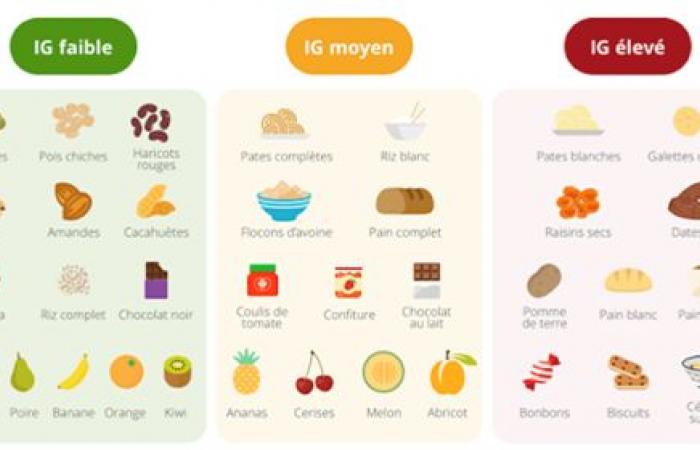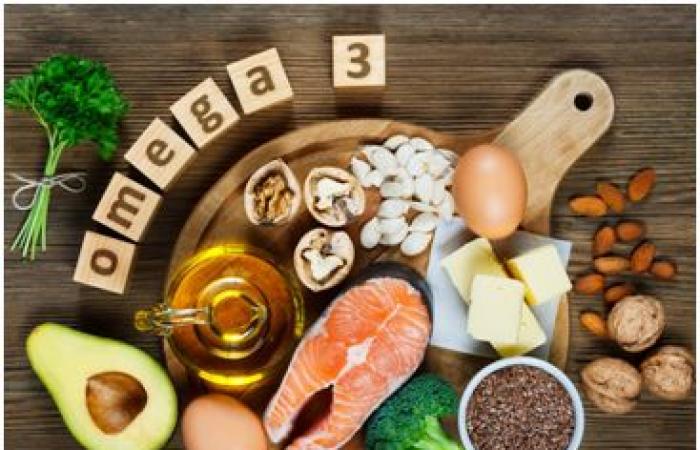Restless sleep, difficulty falling asleep, nocturnal awakenings…: sleep disorders are numerous in addition to being exhausting! We often think about changing mattresses, pillows or buying earplugs to no longer hear our other half snoring, but rarely about what we eat! And yet, our diet can help us regulate and improve your sleep in order to spend more restful nights and, finally, feel more rested and healthier. But concretely, how to do it?
Sleep and diet: 5 tips for better sleep
Avoid stimulants
First tip, among the most obvious but useful to remember: avoid consuming exciting foods in the evening. By “exciting” foods, I mean:
- Foods that are a source of caffeine: coffee (including decaffeinated coffee!), but also tea, sodas and even energy drinks;
- Alcoholand alcoholic beverages are also to be avoided because, contrary to popular belief, they are indeed stimulants. In addition, they promote sleep that is not very restorative;
- So-called “stimulating” spicessuch as ginger, mint, curry or even warming spices such as chili pepper, should also be avoided before bed.
My advice : Of course, some people will be more or less sensitive to exciting foods than others. Example: some people will have difficulty falling asleep after having a coffee around 4 p.m., while others will tolerate coffees taken late in the afternoon very well. This is why it is important to observe yourself and pay attention to your body’s signals.
Avoid foods with a high glycemic index
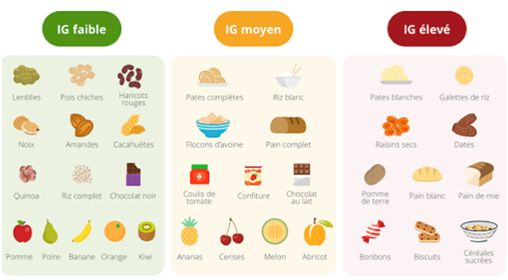
Foods with a high glycemic index promote overproduction of insulin. The risk of being woken up at night by a craving is then present.
My advice : In the evening, choose foods with a low glycemic index. This will be better for your sleep… and your weight too, since hyperinsulinaemia also promotes the storage of what you have eaten as fat.
Eat light in the evening
For better sleep, be careful to avoid meals that are too rich or too fatty, which prevent you from falling asleep and encourage waking up at night.
My advice : We will favor light meals in the evening, choosing low-calorie and low-fat foods, such as vegetables, fruits and cereals and starchy foods.
Avoid dinners too rich in protein
Meals rich in protein should be avoided in the evening because they promote the production of dopamine to the detriment of serotonin. Remember that dopamine promotes alertness and wakefulness, which hinders falling asleep; while serotonin allows the production of melatonin, the sleep hormone.
Excess animal protein at dinner also increases digestion time, which can disrupt sleep.
My advice : For better sleep while ensuring your protein intake, choose protein-rich foods in the morning or at lunch. Limit protein sources at dinner.
Choose carbohydrates before sleeping
If proteins should be limited in the evening because they promote awakening, carbohydrates promote the production of serotonin and melatonin, conducive to falling asleep and deep sleep.
My advice : For a dinner conducive to falling asleep, opt for meals with a majority of carbohydrates. Make room for vegetables, fruits, legumes and cereals, while ensuring that your total calorie intake is low. Remember: we eat lighter in the evening!
Nutrients to favor in case of insomnia
Stock up on magnesium
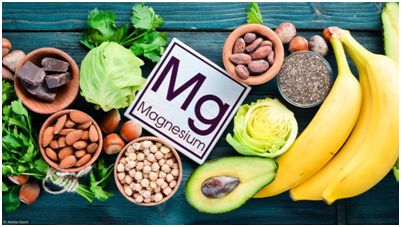
First thing to do in case of sleep problems: stock up on magnesium. This mineral allows the production of serotonin in the body (the “zen” hormone). It also has a crucial role in muscle relaxation. It thus helps to relax the body – a crucial step in achieving sleep. This is why magnesium is known to be one of the best natural relaxers!
Finally, know that it is this same serotonin which is then transformed into melatonin, the famous sleep hormone that we cannot do without at night. So there’s no point in lacking magnesium!
My advice : To avoid lacking melatonin, we make sure to consume foods rich in magnesium, such as oilseeds (walnuts, Brazil nuts, sunflower seeds, etc.) or chocolate (dark!). We do not hesitate to turn to waters rich in magnesium, such as Rozana, Hepar, Quézac, Contrex….
Consume foods rich in tryptophan
Second nutrient of great importance for good sleep: tryptophan. This amino acid, present in small quantities in protein foods, is the precursor of serotonin and melatonin, the famous sedative neurotransmitters which promote sleep.
My advice : We opt for foods rich in tryptophan, such as milk, cheeses, eggs, cod, etc.
Consume more Omega-3
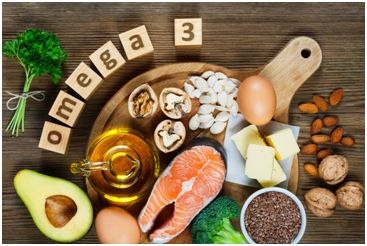
3rd essential nutrient: Omega 3. We also tend to lack it in our diet. Too bad because they seem to have positive effects on sleep. Indeed, numerous studies have highlighted links between low consumption of omega 3 and sleep disorders.
My advice : We make sure to include foods rich in omega 3 in our diet, such as nuts, mackerel, salmon, avocados, flaxseed oil, rapeseed oil and even walnut oil. We also try to limit the quantities of foods rich in omega 6, which are already very numerous in our diet, which tends to harm the effects of omega 3.
The particular case of insomnia due to stress
We (really) pay attention to magnesium!
People prone to sleep problems due to stress often have magnesium deficiencies. This is due to the fact that stress causes hypervigilance in the body which consumes a lot of this mineral. Thus, stress leads to urinary losses of magnesium, thus contributing to the depletion of our reserves. However, a lack of magnesium tends to aggravate fatigue and prevent muscle relaxation, as I mentioned to you previously.
My advice : In case of chronic stress, the first thing to do is to ensure your magnesium intake.
Finally, last but not least advice: listen to your body above all. Pay attention to signals related to fatigue (yawning, tired eyes, etc.). So, at the first signs, don’t wait and go straight to bed!
If your sleep-related problems persist, do not wait to seek medical advice.




